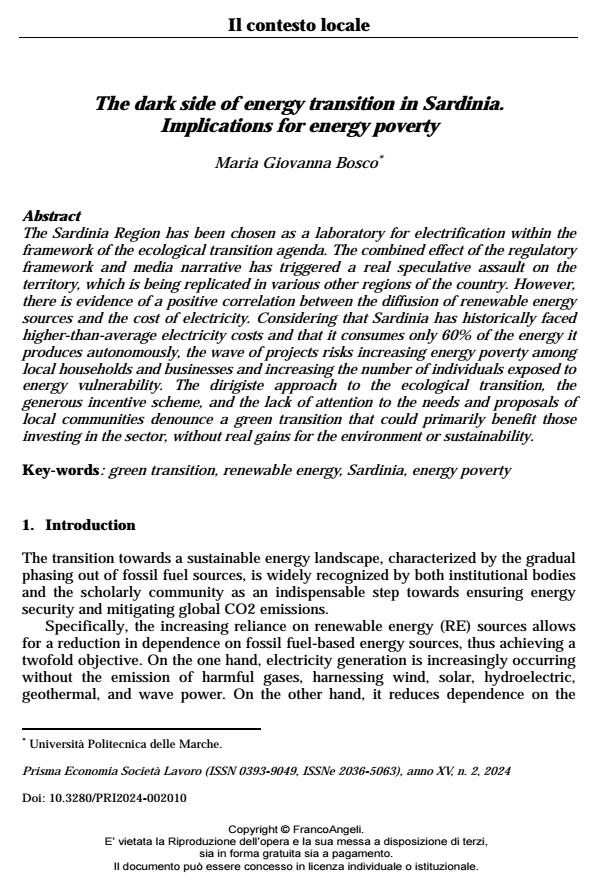The dark side of energy transition in Sardinia. Implications for energy poverty
Titolo Rivista PRISMA Economia - Società - Lavoro
Autori/Curatori Maria Giovanna Bosco
Anno di pubblicazione 2025 Fascicolo 2024/2
Lingua Inglese Numero pagine 25 P. 122-146 Dimensione file 302 KB
DOI 10.3280/PRI2024-002010
Il DOI è il codice a barre della proprietà intellettuale: per saperne di più
clicca qui
Qui sotto puoi vedere in anteprima la prima pagina di questo articolo.
Se questo articolo ti interessa, lo puoi acquistare (e scaricare in formato pdf) seguendo le facili indicazioni per acquistare il download credit. Acquista Download Credits per scaricare questo Articolo in formato PDF

FrancoAngeli è membro della Publishers International Linking Association, Inc (PILA)associazione indipendente e non profit per facilitare (attraverso i servizi tecnologici implementati da CrossRef.org) l’accesso degli studiosi ai contenuti digitali nelle pubblicazioni professionali e scientifiche
The Sardinia Region has been chosen as a laboratory for electrification within the framework of the ecological transition agenda. The combined effect of the regulatory framework and media narrative has triggered a real speculative assault on the territory, which is being replicated in various other regions of the country. However, there is evidence of a positive correlation between the diffusion of renewable energy sources and the cost of electricity. Considering that Sardinia has historically faced higher-than-average electricity costs and that it consumes only 60% of the energy it produces autonomously, the wave of projects risks increasing energy poverty among local households and businesses and increasing the number of individuals exposed to energy vulnerability. The dirigiste approach to the ecological transition, the generous incentive scheme, and the lack of attention to the needs and proposals of local communities denounce a green transition that could primarily benefit those investing in the sector, without real gains for the environment or sustainability.
Parole chiave:green transition, renewable energy, Sardinia, energy poverty
Maria Giovanna Bosco, The dark side of energy transition in Sardinia. Implications for energy poverty in "PRISMA Economia - Società - Lavoro" 2/2024, pp 122-146, DOI: 10.3280/PRI2024-002010